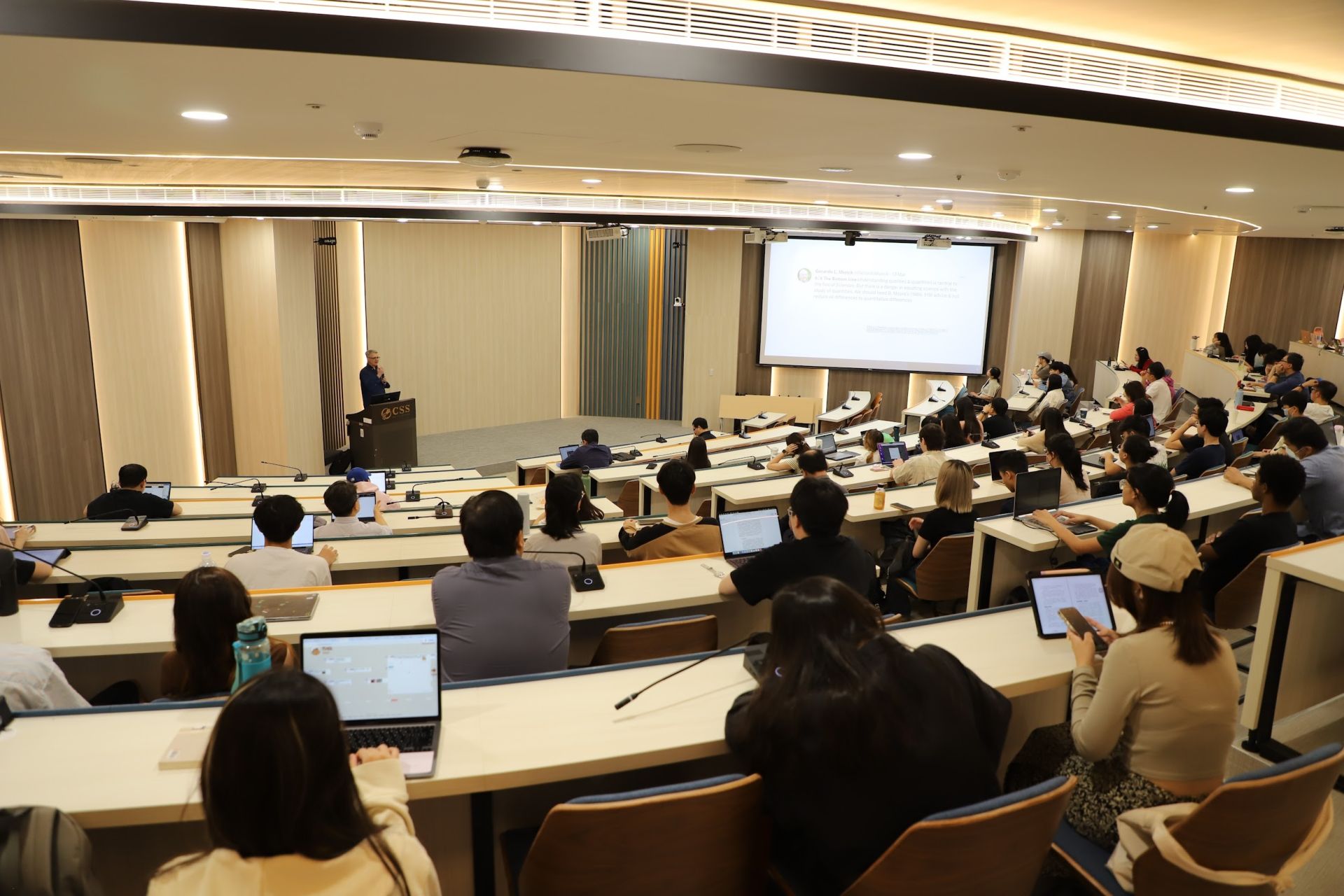"The Digital Politics of AI: An Ethnographic Introduction" by Dr. John Postill
【Article by International College of Innovation】
On May 3, 2024, we had the pleasure of welcoming Dr. John Postill from RMIT University for a lecture titled 'The Digital Politics of AI: An Ethnographic Introduction.' Dr. Postill is a Vice-Chancellor Senior Research Fellow in the School of Media and Communications and is affiliated with the Digital Ethnography Research Centre. During his special visit to Taiwan as a keynote speaker at the g0v Summit, the International College of Innovation (ICI) was honored to invite him to NCCU to share his insights on the impact of digital ethnography and generative AI on politics. This event was co-hosted with the Department of Public Administration and East Asian Science, Technology and Society: An International Journal (EASTS).
The first half of the lecture focused on digital ethnography. Dr. Postill emphasized the versatility of digital ethnography by describing it as a 'flat methodology,' or in simpler terms, 'whatever works.' While traditional anthropological methods stress the importance of physical presence in the field and active participation in communities, Dr. Postill argued that 'lurking' online and archiving posts on social media also play a crucial role in conducting ethnography in the digital realm. He provided examples from his research on the politicization of the digital sphere and the digitization of the political field, where he meticulously followed various political debates and culture wars on digital media platforms. Dr. Postill illustrated how these methods of data collection can offer new insights into social and political movements.
During the Q&A session, anthropologists in the audience raised questions about the digital ethnographic methodology discussed in the lecture, contrasting it with more traditional fieldwork-based methods. A lively discussion ensued about the temporality of research, including the meaning of studying a phenomenon 'in real time' versus collecting archived materials online. The discussion also touched on the difficulty of keeping up with rapidly evolving technology.
After a short break, the lecture resumed with a focus on the current boom in the use of ChatGPT and other artificial intelligence (AI) tools in the context of digital politics. ChatGPT was a particularly resonant topic for many in the audience, who had first-hand experience using it and were well aware of its capabilities. Dr. Postill discussed the application as a 'bullshit genre,' a term that elicited laughter from the audience. However, this word choice was not merely for humor. Dr. Postill contextualized it within the larger discourse of 'bullshit' from philosopher Harry Frankfurt, anthropologist David Graeber, and more directly, anthropologist Ilana Gershon's new article on 'Bullshit Genres: What to Watch For When Studying the New Actant ChatGPT and Its Siblings.' He emphasized the significance of digital tools that can produce deepfakes by emulating existing genres, and explored their potential to intervene with politics.
The lecture was particularly timely, given the growing impact of Generative AI in the 2024 global election year. Dr. Postill not only highlighted the urgency of these topics but also sparked meaningful dialogue on how these emerging technologies can reshape political landscapes and influence policy-making. The session underscored the necessity for continued research and vigilance in navigating the complex interplay between technology and society.

On May 3, 2024, we had the pleasure of welcoming Dr. John Postill from RMIT University for a lecture titled 'The Digital Politics of AI: An Ethnographic Introduction.'(Photo by International College of Innovation)
